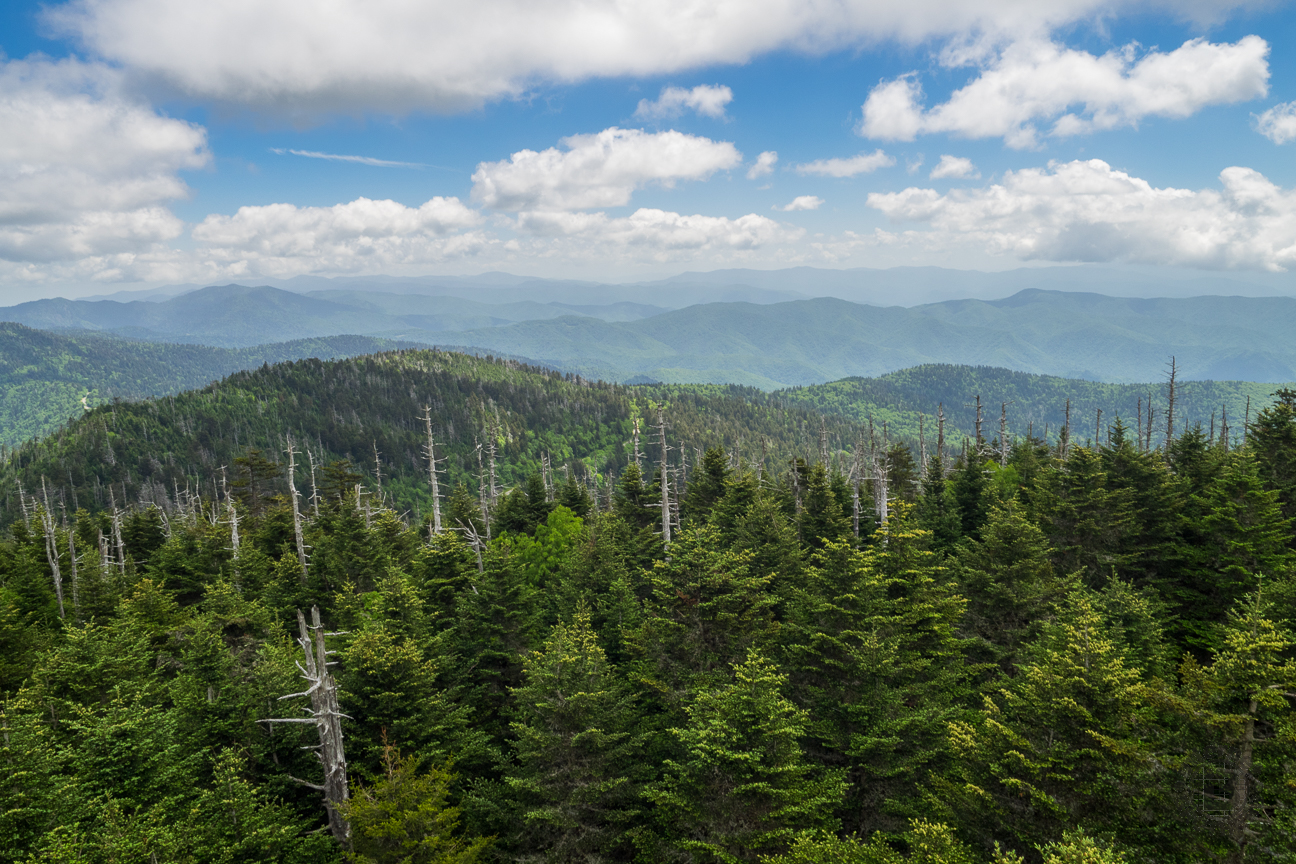Reaching for the sky in the Smokies? Clingmans Dome, at a breathtaking 6,643 feet, beckons with unparalleled views. This guide goes beyond the paved path, offering an in-depth exploration of this Smoky Mountain gem, including the less-traveled route near Forneys Creek, NC. Whether you’re a seasoned hiker or seeking a scenic day trip, we’ll equip you with the knowledge to plan an unforgettable adventure.
Reaching the Summit: Choosing Your Path
Clingmans Dome offers multiple access points, each with its own distinct charm. The most popular route involves driving up Clingmans Dome Road and taking a short, paved (but steep!) half-mile trail to the observation tower. For a more intimate experience, consider hiking the Forney Ridge Trail near Forneys Creek. This 5.8-mile path winds through lush forests and grassy balds, offering a rewarding challenge and a deeper connection with nature.
Planning Your Clingmans Dome Adventure
Before embarking on your journey, careful planning is essential. Consult a reliable Great Smoky Mountains National Park trail map, especially if you’re taking the Forney Ridge Trail from the Springhouse Branch Trail. Remember, weather at this elevation can change dramatically, so packing layers is crucial. Sturdy hiking boots, ample water, and energizing snacks are also must-haves. Always check the park’s website for road closures, particularly during winter when access to Clingmans Dome Road may be limited or nonexistent.
Essential Gear and Preparation
- Layered Clothing: Be prepared for fluctuating temperatures.
- Sturdy Hiking Boots: Essential for navigating the trails.
- Water and Snacks: Stay hydrated and energized.
- Trail Map: A physical map is recommended as cell service can be unreliable.
- First-Aid Kit: Be prepared for minor injuries.
- Headlamp or Flashlight: In case you’re caught out after dark.
Experiencing the Magic of the Forney Ridge Trail
Imagine stepping onto the Forney Ridge Trail, surrounded by the tranquil sounds of nature. The air is crisp and carries the scent of pine and earth. This isn’t just a hike; it’s an immersion into a high-elevation wonderland. As you ascend, the forest gradually opens to reveal breathtaking vistas of distant peaks. In spring, vibrant flame azaleas paint the landscape with color. This longer trek offers solitude and a sense of accomplishment that the paved path simply can’t match.
Exploring Forneys Creek and Beyond
While Clingmans Dome reigns supreme, the surrounding Forneys Creek area offers its own quiet allure. The creek itself is a haven of tranquility, perfect for a peaceful respite. Imagine sitting by the cool water, listening to the gentle murmur of the stream. This less-frequented area may reveal hidden waterfalls or delicate wildflowers to those who explore its paths. Be sure to check out Wiseman’s View NC for another stunning perspective of the Smokies.
Capturing the Majesty: Photography Tips
Clingmans Dome boasts legendary views. On a clear day, you might see across seven states! Don’t limit your photography to the summit panorama. Capture the beauty of the trail, experiment with light filtering through the canopy, or focus on intricate details of wildflowers. Sunrise and sunset offer dramatic lighting, while midday provides clear, bright conditions. Always remember to respect wildlife and maintain a safe distance.
Protecting this Pristine Environment: Leave No Trace
This incredible landscape deserves our respect. Practice Leave No Trace principles by packing out everything you pack in. Stay on marked trails to minimize your impact, and observe wildlife from afar. By leaving no trace, you ensure future generations can experience the unspoiled beauty of Clingmans Dome and Forneys Creek.
Quick Guide: Clingmans Dome via Forneys Creek
| Feature | Details |
|---|---|
| Trailhead | Near Forneys Creek (consult map for specific access points) |
| Trail | Forney Ridge Trail |
| Distance | 5.8 miles (to Clingmans Dome summit) |
| Difficulty | Moderate to Strenuous |
| Elevation Gain | Significant (consult trail map for specifics) |
| Best Time to Visit | Spring, Summer, Fall (check for road closures in winter) |
| Considerations | Layered clothing, water, snacks, sturdy footwear, trail map, check park website |
| Nearby Amenities | Limited within Forneys Creek; more options near main Clingmans Dome access |
Trail conditions and park regulations can change, so always confirm the latest information before your trip. Consulting park rangers for current trail updates is also recommended. While existing maps provide a good starting point, recent weather events can sometimes alter trails. Be sure to check if a detour is necessary.
What is Clingmans Dome Known For?
Clingmans Dome stands as an icon in the Great Smoky Mountains National Park. At 6,643 feet, it’s the highest point in the park, Tennessee, and the third highest in North Carolina. Its iconic observation tower, built in 1959, offers 360° views. But Clingmans Dome is more than just a viewpoint. It’s a place rich in history, home to a unique high-altitude ecosystem, including the fragile Fraser fir forest, and holds a special place in Cherokee history, known to them as Kuwohi (ᎫᏩᎯ). A hidden tunnel beneath the observation tower adds to the intrigue. Discover another intriguing piece of history at the nearby houdini plaque.
Planning Your Visit to the Observation Tower
While the paved half-mile trail to the observation tower might sound easy, its steep incline can be challenging. Take your time, especially if you’re not used to high altitudes. The air gets thinner as you climb. The observation tower itself offers unparalleled panoramic views.
| Feature | Description |
|---|---|
| Elevation | 6,643 feet (2,025 meters) – highest point in Great Smoky Mountains National Park, Tennessee, and third highest in North Carolina |
| Observation Tower | 54-foot tall tower offering panoramic views |
| Access | Via Clingmans Dome Road and a paved, steep, half-mile trail |
| Cherokee Name | Kuwohi (ᎫᏩᎯ) |
| Ecosystem | High-altitude ecosystem, including a fragile Fraser fir forest |
| Hidden Tunnel | Beneath the observation tower |
| Accessibility | Clingmans Dome Road is often closed from December to late March; check the park’s website. The trail is paved but steep. |
Some experts suggest that the unique ecosystem atop Clingmans Dome is vulnerable to climate change. Ongoing research suggests that changing temperatures and precipitation patterns may significantly impact the Fraser fir forest.
When to Visit Clingmans Dome: A Seasonal Guide
Planning a trip to Clingmans Dome? Picking the right time enhances your experience. Spring (April and May) brings vibrant wildflowers. Summer (June and July) offers warmth without August’s intense heat. October boasts stunning fall foliage, often with fewer crowds. Winter visits offer a unique perspective but risk road closures and limited visibility.
Choosing the Best Time of Day
Sunrise and sunset at Clingmans Dome are truly magical but can be crowded. Midday offers a quieter experience, potentially with the observation tower almost to yourself.
Weather and Crowd Considerations
Clingmans Dome’s weather can change rapidly. Fog is frequent, especially in the mornings. Temperatures are cooler at the summit, even in summer. Thunderstorms are possible year-round. Summer and weekends are the busiest times. Consider visiting during weekdays or shoulder seasons for fewer crowds.
| Season | Best Time to Visit | Pros | Cons |
|---|---|---|---|
| Spring | April-May | Wildflowers, pleasant temperatures | Occasional rain showers |
| Summer | June-July | Warm weather, long daylight hours | Larger crowds, potential heat waves |
| Fall | October | Vibrant foliage, fewer crowds | Risk of early cold snaps |
| Winter | November-March (Conditional) | Potential snowy landscapes, solitude | Road closures, limited visibility |
Remember Leave No Trace principles to preserve this natural wonder. Pack out all trash, stay on designated trails, and respect wildlife. By treading lightly, you ensure future generations can enjoy the same breathtaking experience.
















